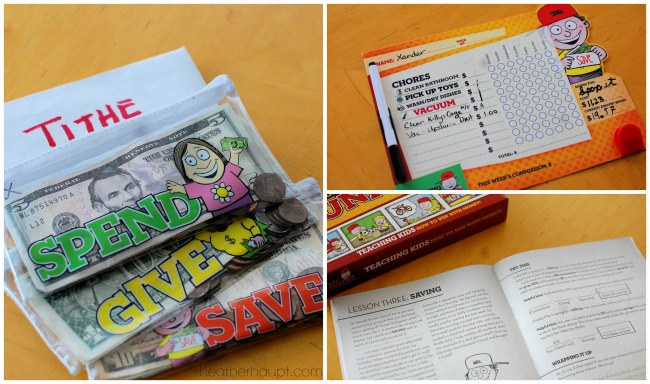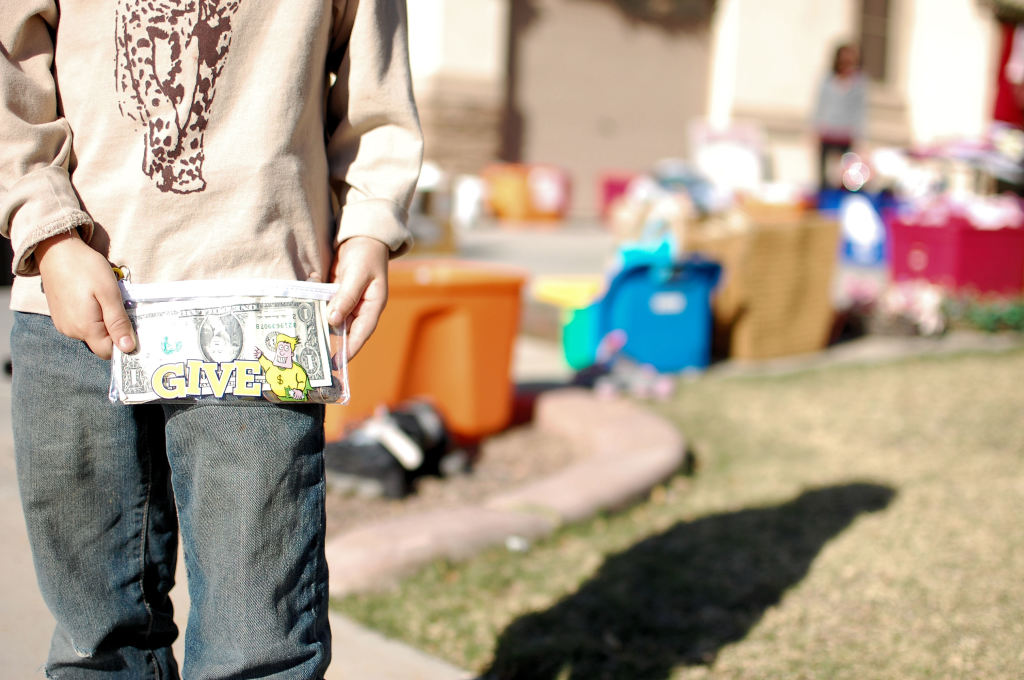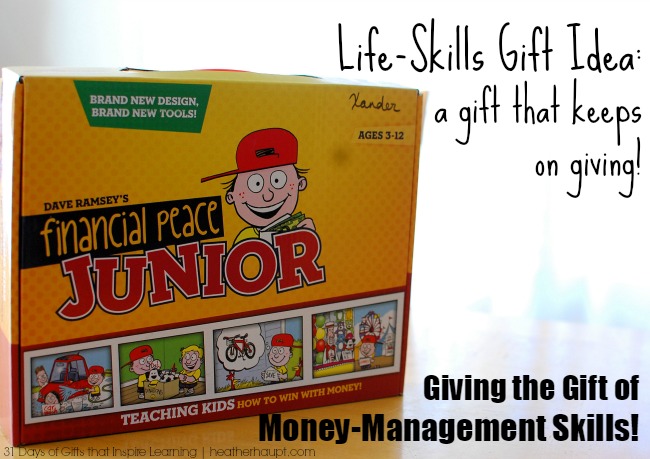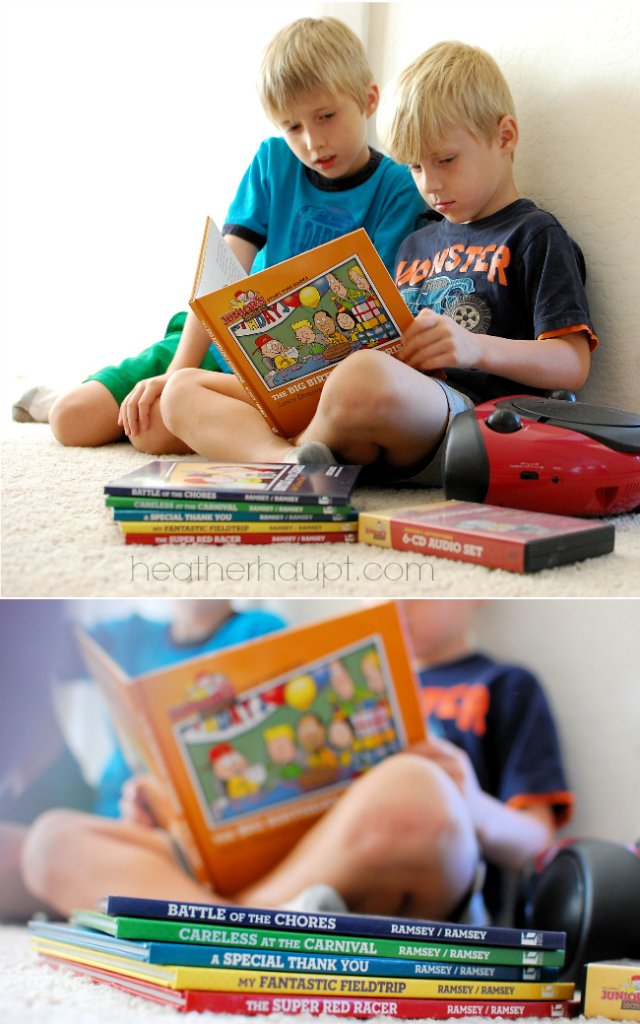
I’ve been meaning to write about this topic for a while and this seemed like the perfect time to dive in and share. I love how our curriculum is based around character traits as we delve into various units. Last year our character trait focus was on stewardship and under this trait we spent time learning about what it means to be a good steward, how to be a good steward, and most importantly, WHY.
Knowing WHY something is important is crucial for one to own their own beliefs. I think it is also one of the critical factors in passing on your values to your children. Our children need to know WHY we make the decisions we make. One day our children will reach a point where they start making their decisions. I’ve already told my kids that they will probably end up making some choices to do things differently than we do when they are grown-up, but along the way they need to think through the WHY’s. In the meantime, I want them to know why their father and I have made some of the decisions we’ve made.
We want to equip them with tools and then lay a foundation for why cultivating money management skills is so important.
When it comes to cultivating money management skills, we want them to understand:
- The value of work (You don’t work, you don’t eat, or buy, etc.)
- The value of money (It doesn’t grow on trees. You get what you pay for which my boys have had to learn the hard way after making a couple of dollar store toy purchases…)
- How to take personal responsibility (Diligence and Hard-work pay off!)
- Principles of stewardship (Saving, giving, tithing and some fun spending all have a place.)
My dear friend and co-op partner suggested Dave Ramsey’s program for kids, Financial Peace Junior. We loved it and think its an excellent resource for a number of reasons.
I’m sure many of you are familiar with Dave Ramsey and his program Financial Peace. I didn’t realize that he had a kids program. Having grown up using an envelope system (I still have my original tin box and envelopes). I was intrigued to give it a try.
Financial Peace Kid Resources
The Financial Peace Junior kit contains:
- A parent guide – with tons of helpful tips to get you started.
- A student workbook with stories, coloring sheets and questions to help your kids start to think about money management.
- Three vinyl envelops marked, SAVE, SPEND and GIVE that zip shut. Having used envelopes my whole life, I have to say that the zipper part is amazing!
- Calculator (the boys were thrilled to each have their OWN)
- Stickers (the toddler confiscated most of ours)
- Magnet chore chart with cling stickers to mark down chores and commission/allowance structure.

While the basic kit is great, we were thrilled to get to try out the story books too and then just add two additional Financial Peace Junior Kits so everyone had their own envelopes and chore chart. It came with 5 engaging hardback books illustrating various principles of money management from staying within your budget, the benefits of buying used, integrity (character when no-one is watching), not going into debt (brilliantly portrayed at a kid level) and the benefits of giving and generosity. While we loved the books what made it even better was having the audio book cd’s. I can’t tell you how many times my boys, especially my youngest who wasn’t reading yet, have sat down to follow along in the book while they listened to the dramatic reading.
Modifications We Made
The beauty of being the parent is that we get to take an amazing program like this and adjust it to suit our family’s needs! While I love this program, I also don’t see anything wrong with making some adjustments here and there. You certainly don’t have to make any of the adjustments we’ve made, but I thought I’d share them to free you up to decide what is best for your family.
Both an Allowance and Commission have their place.
While we had started implementing an envelope system with the boys on our own, I’ve loved attaching it to the magnetic boards which allow the kids to track chores they are doing each day. We implement this a little bit differently than Dave Ramsey recommends. Financial Peace Junior does not advocate allowance. Their reasoning is that nobody gets money simply for existing. I couldn’t agree more. They want kids to see the clear connection between working and getting paid, so they go with a commission system where kids are paid for work above and beyond the basics.
We view an allowance as getting a small amount of discretionary income for being a contributing member of the family. I “get” the rationale of wanting to help them make direct connections with work and pay, but as a homeschool family, the kids pitch in for more chores than most kids that go to school. Because we are all home, we all need to take family responsibility for the work done. Rich and I felt that since he and I don’t receive commissions for the things we do to keep the family running, that we didn’t want the kids to have the idea that they would be paid for each and every thing they do around the house aside from cleaning up their room. We didn’t want them to have the mentality of only doing things around the house if they were paid. We have assigned chores, periodic opportunities to pitch in as a family to work on a project in addition to paid extra chores. We felt that an allowance system fit better with our idea of working together as a team to keep the home running.
So how does this work out? Our kids receive a weekly allowance as they consistently help out with their weekly assigned family jobs which include dusting and vacuuming, cleaning the bathrooms, doing the dishes, taking out the trash, etc. BUT, we’ve merged it with some commission jobs as well (we set up a chart with ideas/options), so the kids have opportunities to earn extra money. They’ve also started seeking out jobs at their grandparents home.
We Pay Less than Average
Another adjustment we made is that we don’t pay nearly as well as some of the amounts mentioned in the books. This is mostly due to our tight budget that we need to keep, but we’ve found it’s been beneficial to slowly ease our boys into this whole earning money thing.
We Add an Extra Envelope
The Financial Peace Junior kit comes with three envelopes: Save, Spend, and Give. We like the kids to participate in the act of gift giving. We usually match funds (especially when it is for a friends birthday), but we have them set aside money each week into the GIVE envelope that is dedicated towards strategically saving for gifts. The TITHE envelope is where they put money that they will give to our church, charity of choice such as one of our favorites, EndBiblePoverty, or wherever they feel led to give to meet a need.
Give the gift that keeps on giving.
So why am I mentioning this in my 31 Days of Gifts that Inspire Learning series? Well, what better thing to learn about than principles of money management, right? My friend actually bought this for her girls for Christmas and it was a huge hit. The books are engaging and then equipping your kids with the ability and direction for making some money and then the tools for managing it makes it a gift that keeps on giving.
And I have a little treat for you… This week, I want to send one of you the audio book for Battle of the Chores: Junior Discovers Debt. The giveaway is open now through next Wednesday, November 12th. You can enter in the rafflecopter giveaway below: {open to residents of the USA and Canada} Rafflecopter giveaway
*FYI: This kit was sent to my family free of charge. All views in this post are entirely my own.





We don’t pay for chores per say, but as the children get older they come up with home business ideas to help make money.
Love this!
we plan to start an allowance. Our commissions are paid in the form of cotton balls and when the jar gets full we take the kids on a special outing/date.
So creative!
We give “commission” based on our assigned chores. You don’t work, you don’t get paid:)
wonderful giveaway!
What a wonderful thing you are teaching your children about money and how to handle it at such young ages Heather. I got a paper route to do with the children when Austin was ten….Emma was three. It was (and still is) a great way for them to learn how to manage money. What fun ideas you have come up with! You are doing a great job with your family my friend. Hugs to you! Camille
I ordered the audio books for my children last year. It was my 5 year old that liked listening to them the most….I was surprised. We don’t really have a system for allowances right now. My 7 year old keeps asking how she can earn her ‘own money’. This kit might be a great way to get the ball rolling.
Love this! I’m not the best at sticking to a method, but the method we implemented isn’t working :/
This is fantastic, would love to have this for our three boys.
I definitely want to give this a try! I’ve been checking it out for a while 🙂
Greg and I do allowance and charts then stop. It’s constant. I need to get better and consistent.
Great post. Thanks for sharing. It is so important to teach children the importance of being good stewardess over there finances with ever small or large bit. I’ll be looking into getting this kit for my nieces.
Great post! Thanks for sharing :o) I was just this afternoon sitting at the park discussing this issue with a mom friend.
Our system sounds similar to yours….I really agree with not having all of the money the kids get be tied directly to specific jobs. As a stay at home homeschooling mom I work and do what needs to be done to be a good helpmate but it is not really correlated to my household budget or discressionary spending at all :o) My husband works hard and is as generous as he is able with our budget as well. I guess I like the idea of our kids knowing that they have to pitch in and trust that their Dad and I will financially bless them with allowance as we are able….and they have seen the amount fluxuate as our finances do but I think that is healthy for them to see as well.
I also agree with adding a tithing envelope since I want to teach the kids that a tithe is different then gifts for family and friends.
On a practicle note I bought little plastic index card holders at Target for about a $1 and use that as their wallet since it already came with plastic dividers and a rubber band loop that holds it securely closed. Seems less clunky to me then when we were actually using envelopes.
I love the idea of training children to be in the habit of saving and tithing. So many people try (or don’t try!) to begin learning that as adults.
And we give money monthly to our kids, they do daily chores but the money isn’t connected to the chores.
my oldest (10) has begun earning money for chores this year and he gets payed to mop and vacuum.
I would love to use this in our homeschooling! Thank you!
my little guys are only 3 & 5 and I have heard good things both ways as far as whether or not to give allowances, so I haven’t really decided yet???
We do not give our kids an allowance. We just started using “Accountable Kids” chore system so our kids do get paid for certain chores, not the basic chores they are expected to do each day.
We don’t do either! For our five kids, we do train them to save and tithe with all of their gift money.
We don’t do allowance right now. We pay our boys when they do a big job. Honestly, we’re trying to train ourselves better and could use help teaching the boys!
We pay our four oldest children $10.00 when they go with my husband to help with our business. We have not taught our children as we are only just learning many of these principles ourselves. I would like to teach them how to use and think about money wisely. I love this series!!!
We give our two children $3 a week. From this they are expected to tithe, put at least a dollar in savings, and then have the rest for themselves. We don’t call it an allowance, and they are expected to do chores around the house as they are part of our family, but are not paid for doing them. We do this to start them learning financial accountability and more importantly to tithe. Our prayer is that by making tithing and saving a life long habit, starting young, will help as they get older and independent.
Sounds very similar to how we do it.
Love this. Teaching our kids how to handle money is so important. I can see both commission and allowance/salary options…